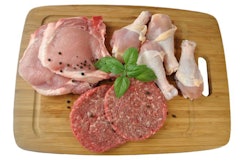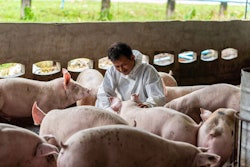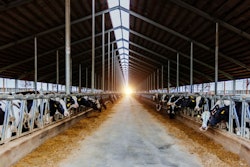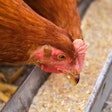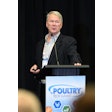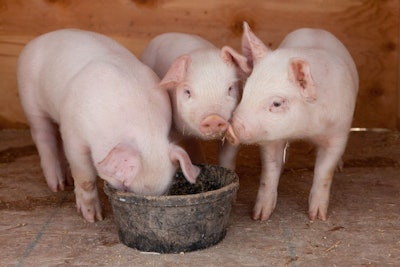
Kansas State University researcher says mortality rates differed little between piglets that were gruel fed twice a day versus those gruel fed four times a day
Research done at Kansas State University (KSU) shows that there is no meaningful difference in the mortality of pigs who were gruel fed twice a day versus those who were gruel fed four times a day.
Madie Wensley, a Ph.D. student at the KSU College of Agriculture’s Animal Sciences and Industry Department, was one of the researchers involved in the project, which was done in cooperation with Pillen Family Farms, headquartered in Platte County, Nebraska.
Gruel feeding, a method of offering a semi-liquid feed to the 10-20% of the smallest piglets from a weaning group, is “commonly used in the industry, but there’s not a whole lot of data that suggests its benefits,” Wensley said while speaking at KSU Swine Day, held November 18 in Manhattan, Kansas.
This particular research sought to find out what the difference was between gruel feeding twice a day and four times a day, for the first 14 days after placement when it came to the mortality rate.
In the experiment, 3,087 nursery pigs were sorted out in a 24,000 head hotel-style nursery, and pens of small pigs were gruel fed two or four times a day. At each gruel feeding, about 2.5 pounds of solid feed was added to a round bowl located at the front of the pen, with the water-to-feed ratio at 3:1 for the first five days, 1:1 for the second five days, and 1:3 over the final four days.
During this time, removals and mortalities were tracked.
While there was a slightly higher mortality rate for those gruel fed four times a day, Wensley pointed out that there was “no meaningful difference in the mortality of pigs,” she said. Those gruel fed twice a day had a mortality rate of 3.8%, while those gruel fed four times a day had a mortality rate of 4.3%.
Wensley was one of several graduate students and KSU faculty members to give presentations of research performed at the university. KSU Swine Day, an annual event, returned to a live format after being held virtually in 2020 because of the COVID-19 pandemic.



